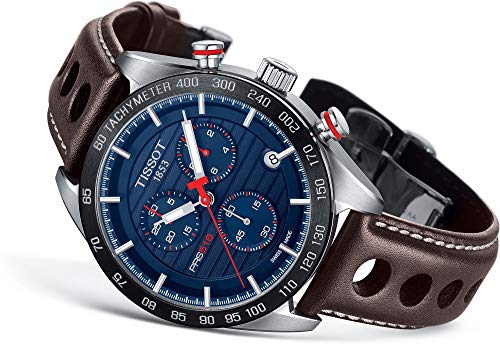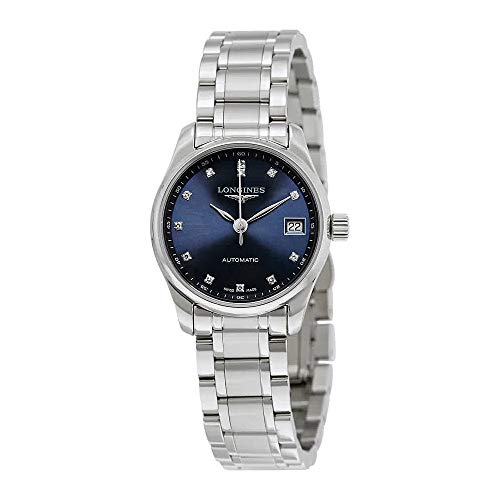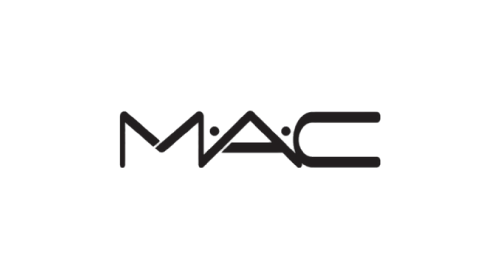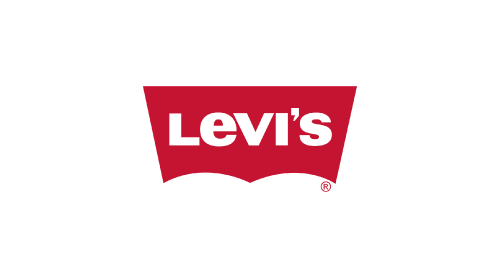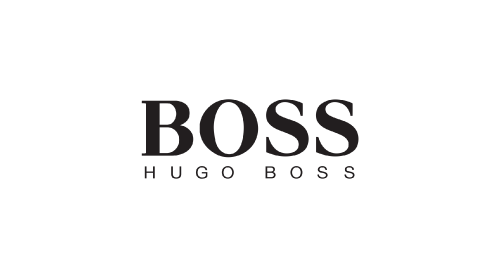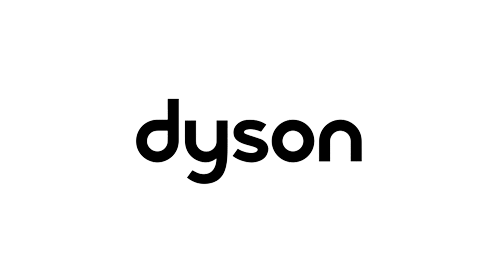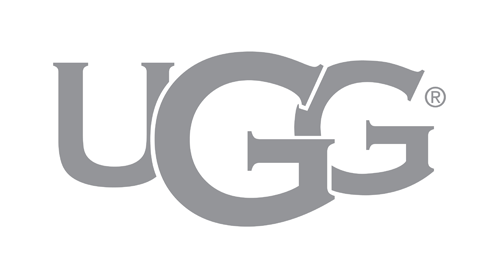#1: Buyers Demand Easy Payment Options
As a seller, you want to offer every payment option imaginable. It’s convenient for your customer and you’ll also make much more money. So be sure to cater to their preferences. Here are 2 reasons we recommend that you do this:
Firstly, it lowers the chance that your buyer will become a deadbeat. If you offer payment options that they aren’t comfortable with, you may turn a would-be buyer into a non-payer.
Secondly, you’ll be able to snag those easy sales that come outside of the auction arena. This is so important- not every buyer will have Paypal. What do you do when your potential customer wants to pay by credit card at the drop of a penny? If you’re flexible and cover all possible pay types you’ll be able to make profits that pass others by…
Here are the payment options sellers on eBay offer:
· Paypal
· Personal Check or Postal Order
· Credit Cards by email, secure server, phone and fax
· Bank Transfer
· Electronic Checks (a new service that eBay offers)
#2: Over 75% of eBayer’s Use Paypal
Hands down, Paypal is the most popular method of payment on auction sites. It’s also very easy to use and will definitely become the predominant way for you to accept payment from your customers. It’s also relatively cheap (when compared to a lot of payment processing companies) as the transaction fees are very reasonable. If you’ve not got an account already then please sign up at http://www.paypal.com/
#3: Getting Set Up With a Payment Processor
Probably only necessary when you have your own e-commerce website or you’re getting continuous requests from your eBay customers to pay direct from their credit/debit card. However it’s not as difficult or as expensive as you may think. The massive advantage of accepting payment via this method is that you can take payment from virtually any card either over the phone, using the person’s card details from an email or via a secure payment form on your website (this will need some form of SSL encryption to ensure customer security). With this in mind you’ll be able to take advantage of sales that other sellers miss out on. It will also give your business a big boost in credibility as people will trust you more when they know you have your own merchant account. There are several companies offering payment processing services from all parts of the world. Of all of them we’d actually recommend PayPal Business as with them there’s no setup fee, this can be as much as £300 with some payment processors, and their percentage of transaction fees are very reasonable at around 3%.
#4: Use An Email Signature
This is a great free way to promote your auction business. Email signatures are six to eight line “footers” at the end of your email messages and newsgroup or discussion board posts. All email programs support them. Take advantage of this cheap and effective means of advertising your listings…
You can also use a signature to promote your auctions, website or whatever you feel is necessary. Considering the number of messages you’ll be sending and receiving, you won’t want to pass this up! Ensure your signature includes all the details someone reading it would need to find out more about your products – remember this is basically like an advert for you so make it as memorable as possible.
#5: Create Email Templates
You’ll receive many of the same questions by email over and over again. Make a good template email for each common query to use as a response to typical questions and for questioning others.
This will save you loads of time. Have your responses prepared ahead of time and you’ll free up large chunks of time to focus on other parts of your operation. Spend your time taking care of business and not drowning in email.
#6: Use Email Shortcuts
In some cases email templates are too generic, for these situations using a programme like ShortKeys can really cut down on the amount of typing you need to do and therefore the amount of time spent emailing instead of selling! With a program like this you can enter commonly used phrases and text at just a touch of a couple of buttons. You can download ShortKeys at http://www.shortkeys.com
#7: Personalise Email Responses
When using your email templates or short-cuts try to personalise them a little to your customer and their needs. Using techniques to cut your emailing time down is very necessary but you still want your customer to feel you are spending time attending to their requirements.
#8: Automate to the Max
When it comes to selling online, this is the Golden Fleece. With auctions, we recommend you automate as many things as we can that repeat. This will allow you to get more work done in less time. Progress here will drastically improve your bottom line. It takes time to learn everything you need to become more efficient, so keep trying. Master techniques for speeding up your eBay auction listings and ensure you make full use of the eBay auction templates (the save for future re-list) features.
#9: Never Delete Email
Throwing email away will come back to haunt you, unless the message is spam. Spam is going to haunt you whether you throw it away or not unfortunately. Keep your emails for reference in the future. Back it up it from time to time, file and clean your emails and email folders to stay organised.
#10: Honesty Is the Best Policy
Make one virtue for yourself on eBay- and that’s honesty. If you’re a little late getting the package into the post then you’ll need to tell your customer. You’ll always be forgiven and spared the negative feedback if you be open and honest with your buyer. They’ll thank you for being straight with them- and reward you with generous feedback.
#11: Save Time at The Post Office
If you don’t have much time to spend at the post office, prepare in advance. You can buy many of your mailing supplies in bulk from eBay or your local stationers then be sure to use the Post Office’s website to get your delivery pricing correct – http://www.postoffice.co.uk/, there letters and parcels section has all the information you need.
#12: Don’t Hold Personal Cheques as a Policy
Bounced cheques are rare. Since your future as a seller depends on the service you provide, being quick and trusting is always going to pay off tenfold in the long run. So, hold cheques only when the item is highly valuable, or when the user has a bad feedback history. Most eBayer’s are trustworthy- just check their record if you’re uncertain. Bounced cheques are hardly ever a blatant attempt to avoid payment- they’re mostly just carelessness. Most buyers will acknowledge the mistake and make up for it.
#13: Price Straight Auctions Low to Build a Crowd
Do you have a good item that you KNOW will sell well? Start it off at a penny. This will get you healthy early bidding. You want a large group around the item; some will be competitive bidders- people who will pay extra just for the thrill of winning. For instance, let’s say you started an auction for a car worth £3000 at just a pound. At the end of the auction you may have 35 people that have bid. Handfuls are hawking it trying to win; they’ve waited all week to battle it out for this ‘bargain’ car. If you started the same car at £2500 then you may only have 3 bids at the end – your chances for irrational bidding have just dropped through the floor. At the end of the auction the fervour will kick in if you priced low and have a good product. You’ll commonly get more for your item than someone who priced their’s higher, because your auction has more bidders watching. Once a bidder is watching your car they’ve already convinced themselves it’s a bargain and they want it, now they will go to great lengths to seal the deal ultimately paying at least, if not more, the market value. You then have one product which comfortably sells for what (or more than) what it’s worth.
#14: Make the Couriers Work Around You
If you’re sending a lot of packages everyday and your local Post Office isn’t conveniently accessible why not look into a courier company making a regular collection from your house? Perhaps use one of the big outfits such as DHL, Parcelforce or UPS. If you send out enough mail you’ll be surprised at the rates you can receive as a business with large amounts of outgoing parcels, you’ll also save money on trips to the Post Office so this is definitely worth a look. Most courier companies allow you to track each package so you can assure your customers they’ll get their goods on time.
#15: A Picture Says It All
Photos make your item stand above any others and make you and your item credible. The better you are with your camera the more bids you’re going to get. Take several photos of important aspects of the item, flaws and all. If your teapot has a crack in it be sure to take a picture of that as well. If your potential buyer sees that you’ve been honest enough to include detailed photographs of every aspect of your product they’ll have much greater confidence in you as a seller and are therefore more likely to bid. Also remember; by inserting a photograph of the item you are selling you get a ‘Pic’ graphic next to your item description. Bidders will see the ‘Pic’ symbol and will be more inclined to visit as they know the auction contains pictures of the product. For a small additional fee eBay allows you to display one of your pictures as a thumbnail image which will appear instead of the ‘Pic’ in eBay search results, on higher value auctions this is almost certainly worthwhile as it further lifts your item from those around it. Remember the more people that see the item, the more bids you’ll get.
#16: Remember To Say Thanks
Send a thank you note/receipt email to your customer every time they pay. Include your eBay user name and telephone so they can contact you if they need to. Kindly ask them to leave feedback in your email. Include a convenient link to the feedback forum, and 9 times out of 10 they will drop a good word in for you.
#17: Make Your Description Complete
When making your item description make it as complete as possible. Many people find your auction through the eBay search engine, which works entirely on your auction headline, so use as complete and descriptive a headline as possible with good keywords too- this will make your listing easy to find for the person looking to buy your item. Leave no stone unturned in your auction description- if you neglect to mention some crucial piece of info bidders will steer clear due to uncertainty. If you’re selling a computer game, forgetting to mention if it’s for a PC or Mac will spawn a lot of email and thus more work for you. It will also attract the wrong bidders and deter the right ones. You may even have bidders who own Mac’s buying your PC game which will potentially result in bad feedback and the loss of your good, hard-earned reputation.
#18: Don’t Overcharge On Shipping
This is one of the more common causes of negative feedback. Only charge what it normally costs you to pack and ship. Buyers are sensitive in this area and due to the way eBay displays each auction your pricing is obvious. If you make a habit of profiting from your customers on postage costs, you’ll lose credibility and any chance for repeat business. Try to concentrate your on making profits from your items auction value and look at the shipping as a way to encourage customers to shop with you due to your extremely low postage costs.
#19: Be Cautious
Be careful about leaving negative feedback for bidders that may deserve it. Go out of your way to clear things up before you decide to do so. It’s normal for bidders to strike back with their own negative and unfair comments. Always try to find some other solution. Don’t leave negative feedback unless they blatantly defraud you- if they don’t pay, either leave neutrals or no comments as this will give you the best chance of ensuring your good feedback is unaffected.
#20: Make Your Customer Your Passion
Treat your customers and potential customers like royalty and they’ll reward you. Your repeat business depends upon your customers. They are your main concern. Your customers are more important than your product or any short-term profit you make. Make it your passion to cater specifically to their wants. If you do this well you will always receive repeat business and good word of mouth which is the best form of advertising possible.
#21: Use Delivery Confirmation
Rest easy at night and get delivery confirmation when you ship your valuable items. Some buyers will receive an item and say they didn’t get it and demand a refund. You can cover the cost of delivery confirmation in your shipping charge. It doesn’t cost much more to make your item a recorded delivery and your buyers will understand the additional cost as it’s also in their interest to protect the item during its carriage. If you take out this service with a nationwide courier company you can track the parcel online. You can also email the tracking number to the customer so they can track the package thus you are worry-free once the package has left you.
#22: Send Customers the Auction Number
At the end of the auction include the auction number with the end of auction notice. Place the number in the subject line so you can easily track emails. Your customer may also be bidding on multiple auctions. Doing this will prevent confusion for you both and save you precious time when searching for any administration details.
#23: Your Listing Schedule
Do you always start and end your auctions at the best times? Always have auctions start and stop when traffic is the heaviest. If you make a listing schedule and stick to it then you’ll get much better results on your auctions. The most popular times are evenings on Monday to Friday between 7pm and 9pm and on weekends between 11am and 2pm then again between 7pm and 10pm. If you make sure your auctions are started between these times you will always ensure maximum exposure.
#24: Double-Check Your Title
Check to see that your item title has no spelling errors. Buyers mainly use the search engine to locate their item of interest and this works on the title. Search saves them lot of time and can pick up items placed in the wrong category. If your spelling is incorrect, the search function will not work. Therefore, you’ll have lost all buyers using the search function. This will kill your auction before it’s even had a chance. The good news is, if you catch misspelling before the first bid, you can always go back and revise it. Try writing your title and description in a word processing file before posting it on eBay’s listing form this will give you a chance to double-check everything without the risk of accidentally posting the entry.
#25: Use a Spell Checker
Linking in with what we’ve mentioned in the previous tip with item descriptions, emails, titles and whatever else you write use a spell checker and grammar checker in a programme like Microsoft Word. Poor spelling and bad grammar will turn off some people and be detrimental to your auctions ability to appear under the search results. Even if it doesn’t matter to them, it still upsets the flow of your message and confuses the reader. You want to make a great impression and get your message across. So it’s always best to check the things you write.
#26: Online Customer Service Rules
1) Your customers are everything. Think of how you’d function without them.
2) Your customer is always right. Never tell them they are otherwise.
3) Go the extra mile…it is worth more than all the paid advertising you can afford.
4) Return emails promptly. If you can’t, set up an auto-responder to tell your enquirers you’ll get back to them soon.
5) Under-promise and over-deliver in everything you do.
6) Never criticize your customers directly or indirectly!
7) Make the auction process as simple as possible for the customer.
8) Follow up the day after the sale and one week after. Ask if there’s anything more you can do for your buyer.
#27: Think About Your Wording
Snipers don’t have the time to email you about condition or vague information on an item. Some buyers only look at items going off auction that day. Always think carefully about the words you use to describe your item. Be honest and avoid wording that will inflate your items value unless it is 100% true. It always backfires on those who make a habit of abusing words and misleading their buyers
#28: Know Your Product
If I wrongly describe my item, some buyers will be leery of bidding. If a buyer believes they know more about the item your selling than you do they will automatically worry and be put off placing a bid. Buyers want professional sellers. The more information you have and use, the more credible you’ll become in the buyers eyes. If you know little about what you are selling spend some time researching the product and improve your knowledge.
#29: Include Shipping Costs in Descriptions
Some sellers have a tactic where they charge unfair shipping and handling fees in order to inflate their profits or make their selling price seem low. Sometimes they omit critical info in the ad and fill in the blanks at the auction end. EBayer’s have been protesting this from day one and these sellers don’t last long- explain everything, costs and all in your item description in such a way that there can be no confusion… If you charge handling- make it known too. If you’re adding money for specific packaging to ensure the safe arrival of your product let your buyers know about it! This will only increase their confidence in you as a reliable trustworthy seller.
#30: Always Insure and Pack Well
By law, you are to blame for items broken in transit due to your bad packing. Buyers have no control over how you pack an item. Couriers never accept liability for broken items. It’s your job to see to it that the customer gets their item in one piece and on time. Make sure you do everything to see to it that this happens. Also, when sending packages with a courier company or The Post Office, ensure that your mailing price includes insurance covering your sale value, packing and mailing costs. By doing this, if ever your customer requests a refund due to a missing item you are covered in full. This is especially true when sending delicate or very valuable items. It will hike up your mailing costs but don’t be afraid to charge these on to your buyer as it shows you are professional and backs up any refund policy you may have.
#31: When the Buyer Lives Out Of the Country
Be careful when receiving foreign funds. Always ensure the PayPal funds clear before sending the goods or insist that they pay by credit card or send an international money order. Remember to pick up some customs forms for sending items abroad from the post office in advance to save yourself some time.
#32: Stay In Contact With the Buyer
When an auction ends, quickly email the buyers with the final price, shipping, total cost, and your address. To reassure your customer, email them when you receive their payment. This is important for their peace of mind and they’ll thank you later in feedback and repeat business. You’ll also score well with the buyer if you send them an email when you ship their goods. Nothing is more frustrating than not knowing when your item will arrive. Even go so far as to follow up a few days later to see if everything is all right… you’ll earn very loyal customers by doing this
#33: Keep Your Auctions Going
eBay bidders usually wait until the last minute to bid. Don’t let anyone persuade you to end your auction early unless they make you an insane offer. Remember if you end early you’ll miss having your listings go through the “going, going, gone” and “ending today” categories that eBayer’s browse heavily.
#34: Using The “Category Featured” Option
You’ll want your item listed on the first page of your selected category’s listings. Category featured listings are 66% more likely to sell. The cost is around £8- if you’re running an auction for a fairly high value item then it’s definitely worth it- the amount of traffic you receive is much greater.
#35: Avoid Misunderstanding
Before email, the only time a written letter was sent or received was when you were writing to a person you know well or a letter to complain. Emotion and character is easily misconstrued with email. Keeping in contact will solve most problems with the transaction. Always consider the situation of the person you are writing to and how they could perceive your email.
#36: Use the Bold Title Option
Make your item standout by listing it in bold. Items highlighted in bold are 22% more likely to sell. For some items it is a cost-effective alternative to featuring your auctions. Test what works for your particular product.
#37: Conservative Pricing
When playing it safe, set the minimum price for your item just slightly lower than what you think it might be worth. This will encourage opening bids on the item. The first bid is always the hardest one to attract. Don’t start too low, though, because the rules state that you are obligated to sell the item for that amount if the minimum is met.
#38: Free Advertising for Your Auction
You can tell other people on the Internet about your auctions. By actively driving extra traffic to your auctions you’ll find that your Dutch auctions (those with a reserve) will do much better. Use signatures and post to appropriate newsgroups or message boards. Use email (not spam) to get in touch with previous customers who have bought related products from you, search engines with pay-per-click advertising (Google Adwords etc….) or whatever works. You can promote individual auctions, your about me page, or a website that sells your products or directs visitors to your auctions.
#39: Where Possible Avoid Using Private and Reserve Auctions
Buyers are especially cautious of bidding when info is held back from them. Most informed eBayer’s can’t stand reserve auctions unless your item is one of kind. Bidders will always prefer straight auctions to those with a reserve. Private and reserve auctions will limit the number of bidders you’ll have for your item. As the reserve price for items is not made public, this will turn off bidders. They’ll automatically assume that the reserve is too high for them to get a bargain. Suppose you set a reserve price of £50, and a bidder is willing to spend £49, if he knew your minimum was $50, he might just bid that extra dollar. Not having a reserve price is a selling point. Mention it in your listing title – announce it loud and clear.
#40: Readability Rules For Descriptions and Emails
1) Use a short opening paragraph.
2) Short sentences make firm friends!
3) Make your paragraphs less than 5 or 6 lines.
4) Underline or boldface important words or phrases.
5) Include attention-boosters: questions, news items, guarantees…
6) Ask for the bid at the end of the description.
7) Use positive language but don’t over-sell or hype your product
#41: Talk to The High Bidder(s) By Phone
E-mail may travel at the speed of light, but that doesn’t mean the recipient reads it right away. On some auctions it’s a good idea to talk on the phone with the high bidder on your item. This shows that you are taking the utmost care to ensure your transaction runs smoothly.
#42: Know What You’re Selling
Before you put something up for auction, look to see if something similar is already selling. Know the market value of your item. It’s always wise to look in on the competition. If similar items are available, your starting bid should be competitive. If you’re not sure of the value of the item you wish to sell, then you should do a little research. Having two similar items up for auction at the same time will just split the buyers and bring lower bids for both items. If your Grandmother just passed away and left you a collection of buffalo nickels, find out what they are before selling off your heritage on eBay. You could be sitting on a goldmine or a lump of coal, and ignorance could mean the difference between pennies and a fortune.
#43: Use Good Packing Material
Newspaper makes good packing material, especially if it’s shredded. It’s cheap, it’s handy and it gets the job done. Save packing material from any other shipments you receive. Bubble wrap is lighter but costs you more than newspaper.
#44: Switch Your Categories
If your auction is under performing (with no bids) and you still have time, change categories. This is helpful when testing new and different categories- if an auction in a new category starts to fail just switch to your bread and butter category.
#45: Very Simple Book Keeping Solution
Use “My eBay” to track monthly activity- on the last day of every month save you’re “My eBay” page to disk and record your sales transactions. File this for income tax records.
#46: Write the Best Description You Can
If you find that many similar items have been sold in the past by other eBay sellers, look for those which have sold for the most, and examine the item description and summary, to see what they did different to garner the higher bids. Then do the same. Avoid plagiarizing the exact item description, though. And be as detailed as possible. The more information you can provide, the more interested the buyer is likely to be.
#47: Learn HTML
All auction sites allow you to use HTML in your item description. Use it. Prettier item descriptions make the item more attractive to prospective buyers. There’s a great guide on the basics of HTML at http://www.webdeveloper.com/html/beginners_html.html
#3 – read that and try what you’ve learned. Sooner or later you’re going to want to get good at it- so why not now!
#48: Use Counters
Services like http://ebaycounters.com/ offer free counters to help track the performance of your listing. Keep up with your page hits so you can make adjustments to improve auction performance and therefore improve your profits.
#49: Be Prepared to Sell for Less than Desired
Most normal items rarely sell for more than actual market value. And just because a similar item sold for £20 doesn’t mean yours will sell for as much. Just don’t sell for a loss. Set your minimum bid, or your reserve price, to your actual cost.
#50: For High Value Items Use a Reserve
Reserves do put some bidders off but can be useful when you’ve got a high value item which you know will sell. Don’t be afraid to put a reserve on which allows you a very small profit for this type of item.
#51: End Your Auction at Peak Times
Many people bid on items that are ending soon, you need to ensure your item is ending soon when most people are on eBay. That means listing at the appropriate times (weekdays 7-9pm and weekends during the day). If you list your auction at 1am you’re missing out on that busy, high traffic period. Bidders enter into bidding wars in the last minutes of an auction. This won’t happen if all the warriors are asleep when your auction closes.
#52: Create Your My eBay Page
Your ‘My eBay’ page is very important! Don’t overlook the significance of it- you can use this to give your buyer important information and much more; Have a nice ‘My eBay’ page set up with perhaps a picture of you or a picture of your business setup. Include your contact info and a well thought out sales message persuading the reader to scroll down the page (where they will see your feedback and current auctions). You’ll receive a huge boost in credibility- something you can never have too much of. It’s also a good idea to use your finely tuned “My eBay” page as the rallying point for all your auction marketing (i.e. email signatures). P.S. You may also want to have your signatures pointing towards your eBay seller page; it’s really up to you.
#53: When to Put a Hold on a Cheque
Cheques can take up to a week to clear so you don’t know if it’s a bad cheque or not. Don’t send valuable merchandise until a week after receiving personal cheque. Make this known in your item description so your buyers are fully aware of your policy. If you are uncomfortable with cheques and wish to only accept postal orders, state this in the item description as well. Be wary with your valuable items.
#54: Beware of Accepting Foreign Currency
Foreign payments often take longer to clear so be sure to make any foreign buyers aware that you are not prepared to send any goods before the funds have cleared.
#55: ALWAYS Leave Feedback
Positive feedback is always appreciated. If the transaction goes well for both parties then positive feedback is a must.
#56: Be Courteous
You should always be polite and courteous or you’ll lose the potential of return business and run the risk of provoking the wrath of negative feedback. While we probably don’t have to tell you this, there are plenty of rude buyers who will test your patience to the max- never let them get the best of you, you don’t ever want to write an email in anger as you will regret it.
#57: Keep Notes
With so much to do, and so many strands of information to keep straight in your head, it’s easy to get overwhelmed. The most important thing you can do to keep your priorities in a row is to keep an idea notepad nearby. Use it to keep track of what must be done each day and cross off the tasks as you complete them. Also, buy a digital voice recorder to capture those fleeting creative thoughts before they fly away into oblivion. If you’re proficient in this area then you can get a lot of constructive things done and you’ll ensure you’re working in the most efficient way.
#58: Reserve Auctions Benefits
Check the help pages on eBay to learn the specifics about reserve price auctions. There are two benefits to reserve price auctions:
1) They allow you to list a low starting bid amount to get people started on bidding for your item.
2) They let you reserve the right not to sell your item unless someone bids at least an amount that you will accept.
#59: List on Weekend Mornings
The best time to submit your ad is on Saturday or Sunday mornings between 6:00am and 9:00am GMT. More people review eBay on weekend mornings than at any other time.
#60: Get Positive Feedback
This is one of the most important aspects of your eBay business. Potential buyers will review this feedback and determine whether or not they want to do business with you. The best way for you get positive feedback is to simply act impeccably during transactions then ask for it.
#61: 3 Day Auctions?
All featured and featured category auctions should be listed the full ten days. It is sometime more advantageous to use a 3 day auction if you didn’t buy any listing enhancements. This is due to the way that people naturally browse eBay’s site. Obviously if you need to shift an item fairly quickly then a three day listing over a weekend is best.
#62: Use Uppercase Letters
As with item titles, you want to catch the potential bidder’s attention. If you don’t end up using templates or HTML code to spice up your text (which you should), then use uppercase letters to highlight the special features of your item. This is especially beneficial when the description text for your item is lengthy as it helps the reader pick up the main selling points of your product. Even if they don’t read the entire description, their eyes will notice anything in uppercase or even surrounded by asterisks. The bottom line here is to make your item stand out and get noticed.
#63: When To Ask for Payment Up-front
A good policy is to say you will accept personal cheques only from bidders with a +10 positive feedback. These bidders have a proven eBay track record and can generally be trusted. Make it your policy to insist that cheques from bidders with questionable or no feedback must clear before you mail anything out.
#64: Check the Buyer’s Feedback Listing
If the buyer that wins your item has a number in parentheses next to his eBay username, then he has feedback. Check this for anyone who places the winning the bid on your item. If the feedback is positive, you may be willing to accept a personal cheque no matter how much the item is going for. If the feedback is negative, request payment in advance via PayPal or that the cheque clears before you send the goods. If there’s no feedback, or if it’s neutral, then follow the information in tip
#63 above.
#65: Check Your Email Three Times Daily
Keep alert! Potential buyers will come to you all the time with questions- you want to be responsive. Some will want more in depth details on the items you’re selling and others will be asking logistical questions before bidding.
#66: During and After the Sale
Ensure you look after your customer throughout their whole buying experience with you. Even after their money is safely in your account you should still take the utmost care to make sure they are happy with your product and service. Common courtesy will go a long way here and you’ll be re-paid by prompt payment and repeat buyers. Another simple tip is to email the buyer when you receive their payment and tell them the item will be shipped out immediately. This keeps the buyer informed as to the status of his purchase. Don’t discount the power of this tip.
#67: Save Money on Relisting
If your item doesn’t sell the first time you list it, you may be able to re-list it at no additional charge. Once the item’s auction is over, go to its auction page, and follow the instructions on re-listing it at no charge. When you relist, change the title or description so create more interest… or lower the price to ensure that this time it sells.
#68: Use Asterisks in Your Item Titles
There are a lot of items up for auction on eBay, and it’s easy for your item(s) to get lost in the thousands of others. Therefore, you must get your item to stand out and catch the eye of someone browsing an item listing. How? Use asterisks in the title. Here’s an example: *** ANCIENT_COINS! ***. See how this catches the eye? This is so simple to do and yet so powerful. It will lift your item from the competition every time.
#69: Use Uppercase Letters in Your Item Titles
As you may notice above, another thing done in the title was to use capital letters. Most people enter their titles in upper and lowercase letters. Anything you can do to get your item to stand out will get more people to notice your item.
#70: Use Bold Text Option in Your Titles
Another very powerful way to get your items noticed is to select the bold title option when setting up your item’s auction. Use of this option must be specifically selected and eBay will charge you an extra £1 or so for using bold, but your item will stand out. Use this for items over £20.00 or it’s not really worth it. Now, to really make your items stand out, use asterisks use uppercase letters, AND a bold title.
#71: Use Underscore/Tilde to Get Longer Titles
Due to a strange anomaly in eBay’s title entry box you can squeeze more characters into your title by using underscore “_” or tilde “~” between words instead of spaces. Give it a try on your next auction.
#72: Use Key Words in Titles
Since there are so many items on eBay, one of the most effective ways people find things is to SEARCH using the eBay search engine. This search engine works on your listing’s title. If you want people to find your item, then place keywords, or obvious words in your titles. For example, if you’re selling a collectible model car, don’t just put the word CAR in your title – put the make and model too. Put in as many keywords in the title as possible so the greatest number of searches will locate it. Think – if you were looking to buy an item like this; what would you search for?
#73: Be Ahead
Ask your high bidders to email their shipping info ahead of time, that way you can have everything packaged and ready to go. Doing this isn’t always feasible but when it is do it- it’s a good habit to attack your auctions this way instead of waiting to the last second.
#74: Digital Shoebox.
Create a purely digital filing system- save some trees and save you a headache! Use email receipts only to keep records income. Get a scanner and scan important documents into the computer like business receipts that come in the mail. Throw your recent opened customer snail mails in a box, put account statements in a folder- and throw everything else unimportant away. A mess of paper is the last thing you want on your mind- file it and forget it.
#75: Crunch Your Graphics
Buyers won’t wait forever for huge graphic files to load on your auction page. There are several really great programs for shrinking graphics. Smartsaver Pro is one of the best but there are plenty to choose from. Take a look around http://www.download.com/ and you should be able to pick up a free programme to do this for you.
#76: Don’t Get Thrown Off
If you want your item to show up during primetime, remember there is a minor posting delay, so post around half an hour early. For instance, if you want your auction to end at 10pm, then start your auction at 9.30pm.
#77: Be Neat
When you first start selling it’s easy to do with the flow and not think too much on where you should be filing emails, receipts etc… We can’t stress enough the importance of getting a system for the mundane administration tasks in place straight away. Get organised and stay that way! If you throw everything into a big pile, as you’ve been tempted to do, you’ll suffer an eventual clutter avalanche. Don’t let procrastination get the upper hand- a clean and organised workplace gives you the chance to keep the menial tasks in the background and to focus on the importance of increasing your profits.
#78: Proofread Your Ads and Email
Always make sure to proofread your listing before you post an ad for the first time, or have some else do so for you. You’ll be amazed at what fresh pair of eyes will uncover… It’s very frustrating to catch a mistake after the auction has began and people have started bidding. Make sure you check over your ad and email for errors.
#79: Find Your Niche
Selling on eBay is just like selling on your own online store or any other real world business. In order to be successful you need to pick a niche and stick with. When you’re starting out selling it’s ok to sell a little bit of everything- but when you get serious, sit down and decide where you’re corner of the market is.
#80: Offer A Free Newsletter
A great way of staying in touch with customers and potential buyers is to offer a newsletter dealing with their interests- such as something dealing with the niche you choose. You can use this to build trust, give out free information, and to plug your auctions.
#81: Don’t Start Auctions Too High
Whatever you do, don’t start your auctions out too high. EBay is not a good place to do this since the bidder wants a deal and it’s certainly a buyers world out there. It’s always better to start low and set a nice reserve if you absolutely must cover yourself. Starting too high kills the spirit of the auction process. People come to the auctions to compete for a bargain. If you price highly you won’t get the frequent early bids and won’t get the same following that you could have had if you had priced low. When you have many bidders on an auction, then irrational bidding isn’t far behind. This is something you want! Pricing highly undermines this. You will also incur higher listing fees if you price high. You only pay the minimum in listing fees if you start anything below £9.99- which on eBay is around nine pence. Do your research and get a good idea of your items market value – generally, similar items tend to sell within a fixed price range; your goal is to hit the upper limits of that range. The people that drive prices up are either “irrational bidders” or they don’t know the market value of a product they want, and exceed it in their bids without really knowing that they overpaid.
#82: Beware Of Reserve Auctions
Reserve auctions are taboo on eBay- most bidders steer clear because they aren’t “true” auctions and are somewhat deceptive. Use a reserve auction only when necessary, and as a means of protection only when you are uncertain of value and demand. You can also use them if you absolutely refuse to take less than a certain amount for your item – this is useful if you have a high value product. Be prepared for mediocre results if you use them regularly. If your auction fails to meet the amount you set eBay will tack on a £1 fee.
#83: Backup, Backup, Backup!
Losing your data is like losing your brain- it’s crucial that you begin backing up your data today! Sod’s Law is always waiting for you to slip…! Make sure you buy some cheap CDRs or an external hard drive so that you can make regular data back-ups.
#84: Eudora Pro
What email program are you using? Outlook Express? If yes, you may want to consider a more powerful program to take care of your email. Eudora Pro will do the trick. Unfortunately you have to pay for the software (they offer various payment/software levels) but you can use the shareware version for 30 days to see how you get on. The Eudora Lite version is less versatile but doesn’t expire. You can get a copy from the link – http://www.eudora.com
#85: Your Database
You’re customer database is a gold mine of information- you want to have a simple program that will record and keep track of customer info. Info such as name, email address, auction number and so on.
For this you can use a program like MS Access, Excel or some other simple type of spreadsheet programme. If you plan on being as organised and profitable as possible, keep an excellent and complete customer database!
#86: The Taxman Cometh
Did you know that auction income is taxable? It certainly is. Keep good records and you’ll be rewarded at tax time. The last thing you want is a week taken up by sorting through a mess of paper work and receipts come tax return time. Don’t keep good records and you’ll be penalised- the tax advantages to having a small business are many- consult your local Business Link, a financial advisor or independent accountant for advice on tax liabilities and credits. Rules differ depending on your circumstances and business operating circumstances. Your tax filing records should allow you to identify your sources of income and keep track of business expenses. It’s that simple. As a small business owner or sole trader uses what is called a cash basis book-keeping system. This simply means income is recorded when it is received, and expenses are reported when they are actually paid. Many sole proprietors and businesses with no inventory use the cash method. From a tax standpoint, it is advantageous for a new business to use the cash method of accounting. That way, recording income can be put off until the next tax year, while expenses are counted right away. For more information on how tax affects your business and general business advice check out the government’s business advice website – http://www.businesslink.gov.uk/
#87: Using a Website With Your Auctions
One great way to boost your profits is to use a website with your auctions. Use a little subtlety promoting your website on your auction listings. The rule is: You can’t provide a link to your website where you are selling the product for the same price or less. Although you can put a link in your auction saying “If you like this you’ll like the other products in my range – please check my website for details…” Be sure you don’t break any rules to avoid having your auction pulled. A website can serve many purposes. Use it well and it will catapult your auction efforts ahead of everyone else. If you are clever you can use your eBay auctions to drive sales on your website and therefore avoiding eBay fees on those sales. However you should be careful here- you will need to be very creative, but if you get too cute eBay will warn you and eventually pull your auction due to fee avoidance.
#88: Promoting Your Auctions Outside eBay
Few people try to drive traffic to their auctions. Find a good way to do this and you’ll get tons of free hits. Find appropriate message boards to promote on. Use free classifieds, newsgroups and whatever method will work for your particular type of auctions. You can use email just make certain it’s highly targeted- don’t spam.
#89: Study Up!
You are what you read… I spend a good bit of time reading and trying to keep up with the newest trends in internet marketing and the most popular retail items and sectors. There’s a lot of good information available to you for free, but to get the really good stuff it’s sometimes worth investing a little bit of money. So get down your local library and lend any online marketing or retail books they have. Perhaps browse a book retailer’s website for popular and well regarded marketing books written by top consultants. Remember, the more knowledge you have the better equipped you are to succeed.
#90: Using Other Auction Sites
You may find that your area of the eBay market is a bit too crowded. If the competition is really tough for what you’re selling check out a few of the other auction sites such Amazon and Yahoo. Try to limit yourself to these two extras- once you start selling on some of the other auction sites you begin get smaller and smaller returns- plus the buyers are going to be less reliable. A negative feedback on Lycos auctions means nothing- on eBay it does… buyers just don’t take smaller venues very seriously. Note: You are far more likely to receive a bounced check on Amazon or Yahoo than you are on eBay. On Yahoo you can list for free- but don’t let that fool you; your ad will never be seen. On the other hand- Yahoo allows you to bid on your ad exposure. You may have a product that fits into a category with no competition- you can buy a day’s worth of the sites best advertising for a relatively small amount. It’s possible to sell a £150 item for as little as £1 in advertising fees.
#91: Information Products Are the Way to Go
Selling information by CD is the way to go on eBay. The competition can be fierce but your inventory costs are laughably low and your markups are high. Simply find the hottest selling information products and change them a little, give them a name and make them yours. Go with the proven winners- check the featured auctions to find out what the hot items are and what topics people are interested in.
#92: Skyrocket Your Auction Profits by 40%: Up-Sell Products
Up-sell products are items you offer the winning bidder at the end of the auction for a few dollars more that complements the product they bid on. All you have to do is make sure they’ll want it, show them the benefit of having it, and simply ask them to buy. It’s just like when you go to McDonalds and order just a burger and the cashier asks if you’d like fries and a coke. You thought you just wanted a burger but you end up with the fries and drink because you really wanted that too once you were offered it. You won’t always be in the position to offer up-sell product starting, but as you get more experienced you will see some obvious opportunities; if you’re selling information it will be easy to create good complementary products that your customer will want. Realise the importance of up-sell products.
#93: The Real Way to Boost Your Profits
The other way to boost your sales is by offering your customers products called back-ends. This is where you can make major money if you prepare. Once you have built the trust of your customer they’re likely to buy from you again and again- take advantage of this by offering them things they will want and are interested in… Think of a professional stamp seller who uses eBay to add to his customer base. Let’s say he has a customer database of a 10,000 avid eBay stamp collectors; If this stamp seller does his homework then he will know what types of stamps his customers are crazy about. He will find the right source for these stamps and Voila! He will make money. One day he sends them an email explaining to those 10,000 people that he has 5,000 rare civil war stamps. Within a couple of days he sells them all and nets a £5 profit per stamp. He just made £25,000! You’ll want to approach your auctions the same way- that is why you’ll want to find a corner of the market to work from. That way you’ll be in a better position to resell to your customers over and over again… not only will you know what your buyer wants in general, but you’ll have a huge base of people who have similar interests. If you don’t have a niche you can’t do this.
#94: Marginal Net Worth?
Marginal what? This term simply refers to the long-term value of your customer. Develop a long-term relationship with your bidders and offer them similar products they will want (by email). Look past the initial sale-now you know why selecting a niche is so crucial. Pick a niche market and you’re in a superior position to know your customer and to anticipate what they will want. Stamp collectors are interested in stamps and stamp related items; video game players are crazy about video games. Consider the lifetime worth of your customer and leave everyone that doesn’t in the dust.
#95: Other Must Have Programs
Here are the several programs I use daily that you can download for free at http://download.com/:
- · A.I.D.- Auction information database program
- · Eudora Lite- fully featured email client
- · Homesite- an excellent must have html editor
- · Paint Shop Pro- graphics software
- · CuteFTP- FTP program for uploading files to the Internet
- · SmartSaver Pro- Crunches pics so pages can load faster
- · ShortKeys Lite- Email shortcut program
#96: PayPal Will Offer You a Solution
Earlier we touched on using a payment processor to enable you to accept electronic payments on your own website. We find that PayPal are the best in the business. Their fees are extremely competitive, they allow you to take payments from virtually any type of card, your takings instantly arrive in your PayPal Business Account and as a bonus you can obviously accept payments from the eBayers preferred method – PayPal! Of course there are other payment processors out there offering various other deals so if you fancy taking a look around do some research on google before you sign up with any company.
#97: Work With The Post Office!
Save time, effort and money by using The Post Office (or the courier of your choice) as your business partner. Make sure you are aware of and utilise the services they offer. Find out more about how The Post Office helps eBayers at their specific page – http://www.postoffice.co.uk/portal/po/jump2?catId=19100176&mediaId=35300684. Learn how to calculate your postage costs, get favourable postage rates and track your items…!
#98: Use a Good Sales Policy to Avoid Trouble
Post terms and conditions on every listing you create. Things like shipping terms or any other rules that you’ll use or stipulations for the type of payment you will take for the listed item. Make a separate text file containing your sales policy that you can edit, copy and paste into your listings quickly. Sit down and come with a good policy in order to avoid any bumps in the road- do you insure packages? Do you accept cheques? Do you deal with buyers with questionable feedback? Be sure to state these types of things in your policy.
#99: The Importance of Good Feedback
Building up a good feedback record on eBay is your
#1 priority starting out. The credibility factor will weigh on you at the beginning but this can be overcome…
Remember:
- · Treat your winning bidders like royalty
- · Sell them a quality product
- · Actively pursue positive feedback from winning bidders
On average, only 55% of bidders leave feedback if you don’t prompt them at all. Let them know that you NEED feedback. Don’t afraid to send your buyer a couple of messages to remind them that they should leave feedback. Once you have a good record people will be much more likely to do business with you. Make it your goal to never get a negative comment. This is hard to do but very impressive as far as a buyer is concerned. If you do get ‘negged’, correct the mistake and move on, it’s not the end of the world. Kindly reply to the response with a rational explanation for the problem and your buyers will overlook it when they glance through your profile.
